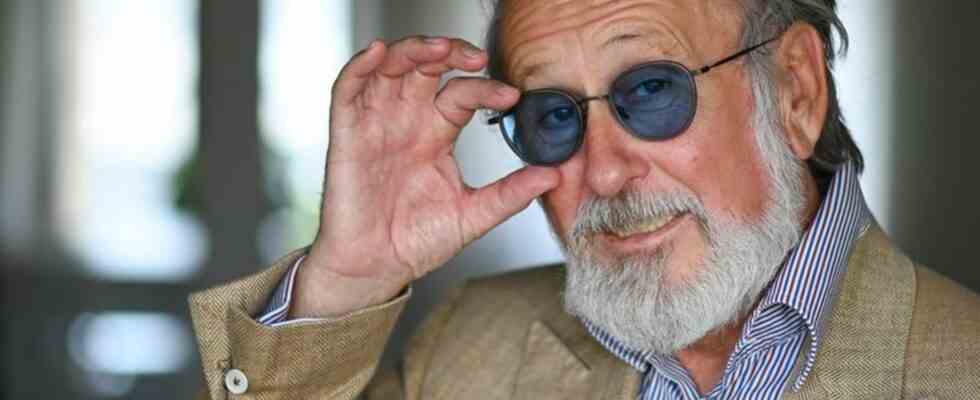Good Gastein
Friedrich Liechtenstein’s subtle revenge on West Berlin
His new album is a picture of the mood of the past two years, says Friedrich Liechtenstein. photo
© Jens Kalaene/dpa
Some know him from commercials. He has been making art for decades. A conversation about music, Transylvanian tomatoes and the question of why he, of all people, is singing about old West Berlin.
Friedrich Liechtenstein is one of those Berlin artists who sometimes puzzle you. Some know him from commercials – the “Supergeil” song for a supermarket chain, for example, was clicked millions of times. At the same time, Liechtenstein does much more interesting things, for example music. “Good Gastein” is the name of his new album. A mixture of spoken texts, covered songs and other pieces.
When he tries to explain the idea behind it, he resorts – very modestly – to art history. “It’s a concept album. And it’s actually quite cheeky to give it to people without describing the concept exactly,” says Liechtenstein. “Without a concept, the famous urinal, Duchamp’s ready-made, is just cheek.”
At first the record sounds like a late summer evening with “We Have All The Time In The World”, then it’s about “Tomato Love”. The 66-year-old also grows tomatoes in his roof garden, but the best are Transylvanian tomatoes from Romania.
With Corona in the intensive care unit
With a beard and sunglasses, a suit and (sometimes) golden fingernails, Liechtenstein has built a character with recognition value. His new album has a “crispbread-like” sadness – it is a mood picture of the past two years, says Liechtenstein. In the first year of the pandemic, he was in intensive care himself with a corona infection. That does something to you.
The album is about chocolate pudding and itsy bitsy spiders, bodies steaming blood and the Austrian spa town of Bad Gastein (an earlier album was called). And always around Berlin. (“Oh Berlin, you’re really nothing big, nothing to kneel down. Mostly some nonsense and a lot of cocaine.”)
A piece of coming to terms with the past
Liechtenstein comes from the GDR, is a trained puppeteer and is imprisoned in East Berlin. On the new album he sings about “West Berlin” of all things. For almost ten minutes he takes you on a journey through time to places and people in the old west. For Liechtenstein also a bit of coming to terms with the past.
“I’ve always felt that there’s such pity when people say, ‘Oh man, they took the whole East from you. Poor you!’ You don’t like to hear that,” says Liechtenstein. “Then I was in Tegel on a short bus ride, and there were a lot of West Berliners on the bus. We drove through Tegel Airport – tears shed there too. They also complained about everything that had been taken from them.”
“Some say: ‘You’re always complaining – but do you think our West Berlin is still there? That was taken from us too.’ I found that kind of touching,” he says. “And I thought to myself: Okay, you can give that back and say: ‘West Berlin, that was nice. Let’s go over there and see if the old houses are still standing’. That’s a bit cheeky and I think so I’m pretty.”
At the same time, it is a confrontation with his place of longing in the 1980s. “One has always dreamed of West Berlin, heard about the places and the concerts, the high gloss, the Ku’damm, the cool people. On closer inspection, it’s also a bit stuffy.” So the song sounds a bit nostalgic, a bit ironic. “The text comes from a restaurateur, says Liechtenstein. Despite all the irony and distance, it’s a great love song for Berlin.

